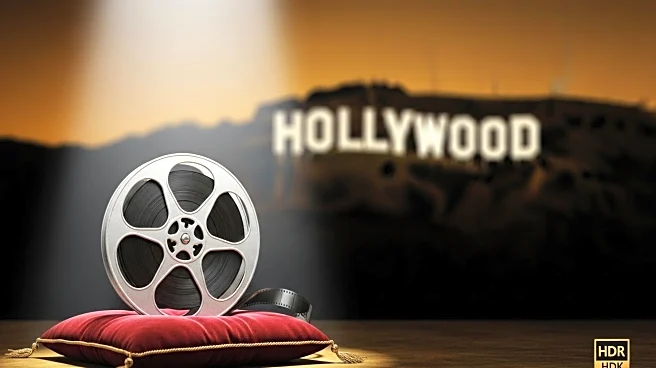What is the story about?
What's Happening?
Paramount has publicly opposed a proposed boycott of Israeli film institutions, a move initiated by a group named Film Workers for Palestine. This group, supported by numerous Hollywood figures, has called for a boycott of Israeli film festivals, production companies, and other organizations, accusing them of participating in 'genocide and apartheid against the Palestinian people.' The open letter supporting the boycott has been signed by prominent filmmakers and actors, including Jonathan Glazer, Ava DuVernay, and Emma Stone. Paramount, recently acquired by the Larry Ellison family and RedBird Capital Partners, has taken a stand against this campaign, emphasizing the importance of storytelling in fostering understanding and peace. The studio's leadership, including CEO David Ellison, believes that boycotting individuals based on nationality is counterproductive.
Why It's Important?
The stance taken by Paramount highlights a significant division within Hollywood regarding the Israeli-Palestinian conflict. The entertainment industry, known for its influence on public opinion, is now a battleground for differing views on international politics and human rights. Paramount's opposition to the boycott underscores the tension between supporting artistic freedom and addressing political issues. This development could impact the relationships between Hollywood studios and international film markets, potentially affecting collaborations and distribution deals. The decision by Paramount may also influence other studios and industry players to take a position, further polarizing the industry.
What's Next?
As the debate continues, other major studios and industry figures may be compelled to declare their positions on the boycott. This could lead to further divisions or a push for dialogue within the industry. The response from Israeli film institutions and the broader international community will also be crucial in shaping the future of this controversy. Additionally, the impact on film festivals and international collaborations could become more pronounced, affecting the global film landscape.
Beyond the Headlines
The boycott raises ethical questions about the role of art in political discourse and the responsibilities of artists in addressing global issues. It also reflects broader societal debates about the effectiveness of cultural boycotts as a tool for political change. The situation may prompt discussions about the balance between artistic expression and political activism, potentially influencing future industry practices and policies.















